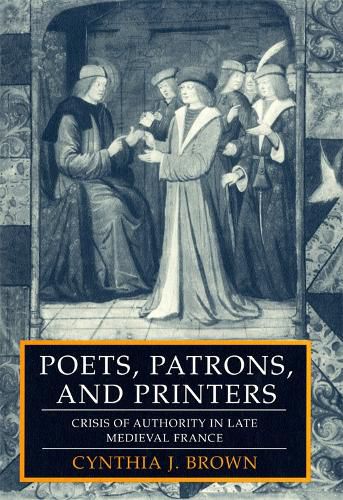Readings Newsletter
Become a Readings Member to make your shopping experience even easier.
Sign in or sign up for free!
You’re not far away from qualifying for FREE standard shipping within Australia
You’ve qualified for FREE standard shipping within Australia
The cart is loading…






Cynthia J. Brown explains why the advent of print in the late medieval period brought about changes in relationships among poets, patrons, and printers which led to a new conception of authorship.
Examining such paratextual elements of manuscripts as title pages, colophons, and illustrations as well as such literary strategies as experimentation with narrative voice, Brown traces authors’ attempts to underscore their narrative presence in their works and to displace patrons from their role as sponsors and protectors of the book. Her accounts of the struggles of poets, including Jean Lemaire, Jean Bouchet, Jean Molinet, and Pierre Gringore, over the design, printing, and sale of their books demonstrate how authors secured the status of literary proprietor during the transition from the culture of script and courtly patronage to that of print capitalism.
$9.00 standard shipping within Australia
FREE standard shipping within Australia for orders over $100.00
Express & International shipping calculated at checkout
Cynthia J. Brown explains why the advent of print in the late medieval period brought about changes in relationships among poets, patrons, and printers which led to a new conception of authorship.
Examining such paratextual elements of manuscripts as title pages, colophons, and illustrations as well as such literary strategies as experimentation with narrative voice, Brown traces authors’ attempts to underscore their narrative presence in their works and to displace patrons from their role as sponsors and protectors of the book. Her accounts of the struggles of poets, including Jean Lemaire, Jean Bouchet, Jean Molinet, and Pierre Gringore, over the design, printing, and sale of their books demonstrate how authors secured the status of literary proprietor during the transition from the culture of script and courtly patronage to that of print capitalism.